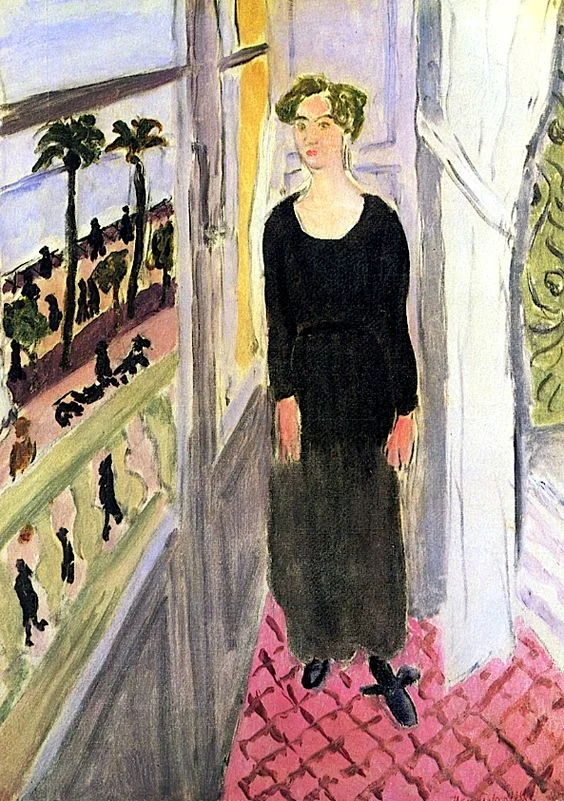On Belonging
“Integration is a crucial part of wellness . . part of that project, for me, will include getting my bearings on my place in history; this means both my family’s history, my genealogy, as well as my geo-political-socio-economic context. It involves reflection, which ideally leads to insight. It involves learning about and accepting the pain that my own ancestors have both perpetuated and endured.”
-Valerie Brett Shaindlin
Does belonging anywhere necessarily require the displacement of others? How can it be that I have been born, grew up, and lived, only in places that I and my family are not from? If I am not from these places, then where am I from? Must I be from somewhere?
Which raises the fundamental question: what does it mean to be from somewhere?
I am what I call an island-baby; although I am now grown, I still consider myself as such. I was born on an island called Manhattan, which a white European man sketchily purchased from Indigenous people for a paltry amount. Surely this unfair act has nothing to do with me, a mere [white] baby born there three and a half centuries later? But it does, in some not-insignificant way, because that mythologized purchase allowed an influx of even more white people, until finally my then thirteen-year-old Jewish grandfather arrived from Crimea to what was previously Native American land but was now a bustling, diverse, American metropolis.
When I was two my parents moved our three-person family to an even smaller island, this one also taken over by white people from its Native inhabitants. When I was twelve, we made another move, just three islands over (but the white people in charge there were a slightly different breed: American, not British). When I was thirteen we moved to a fourth (and final, for us) island, also stolen—fairly recently—from its Native people by organized Caucasians.
When I went to college, it was my first-ever experience living off of an island, in a landlocked locale—on land that also now belongs primarily to the white descendants whose forebears stole it from the brown people who originally populated it. Land not bordering the ocean did not feel like home. Immediately after college, I moved back to the island of my birth, and then two years after that, back to the island of my adolescence. Now here I am, again living surrounded by sea, on the island of Oahu.
Hawaii is tied, along with the small Virgin Island where I enjoyed my childhood, for place-I’ve-lived-the-longest-in-my-lifetime—although those eight years were, in both instances, broken up into two equal chunks, with time spent elsewhere in the middle. Honolulu was a four-years-on, six-off, four-on stint, and Virgin Gorda was four-year- on, one-off, four-on, but they are currently even in terms of total time spent. Mentally, emotionally, physically, I feel that I am from both islands, and neither. Perhaps it is because I don’t yet have a concrete plan to leave Hawaii, or maybe it’s because I spent my later years here, so I have more reliable memories of it, but Hawaii feels as though it is about to surpass the V.I. as my visceral home, the place I can say I’m “from” and have it sound at least somewhat believable to my own ears.
“Where are you from?” has always been a question I dreaded (and still do).
The places I physically come from when I am in a new location are places I have lived, but they are not mine. To say I am “from” somewhere, to me, indicates a sense of belonging to that place. Belonging implies a history. It implies a connection; to the land, to its people, to traditions and stories and food and language and names. It indicates a context, a merging of the person with the place, so that one does not make sense without the other. This is a phenomenon I feel wholly outside of. I do not speak any language other than [American] English. My family is spread all over. In some ways, that is my privilege as a white American—I am mobile. In another sense, it leaves me feeling unmoored, as if I’m floating aimlessly through geography, perhaps even through time.
Not knowing my roots means existing untethered. Perhaps this is why psychotherapy sometimes encourages patients to explore their family trees, origins, and myths. In my family, everyone who came to the United States (in the 20th century) left their original hometowns out of necessity. There was tragedy and pain associated with their pasts, so they sought to sever themselves from it, to start anew in the new country. This makes it difficult for me to find out information about my family’s roots; no one wishes to speak of it. No one remembers the languages. Everyone in my family is a white American now.
This leaves me with the burden, responsibility, and privilege of looking into the past on my own. Integration is a crucial part of wellness, whether mentally/emotionally, or spiritually, or both. Part of that project, for me, will include getting my bearings on my place in history; this means both my family’s history, my genealogy, as well as my geo-political-socio-economic context. It involves reflection, which ideally leads to insight. It involves learning about and accepting the pain that my own ancestors have both perpetuated and endured. We already know that, paradoxically, looking to the past can help us mold the future. Similarly, finding our roots can help us be free.



